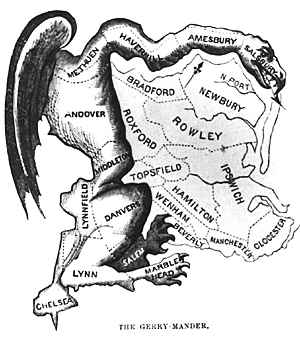Could the Linndale speed trap be nearing its end?
Ohio's legislature voted this week to ban towns of less than 201 people from operating mayor's courts. It's a law aimed directly at Linndale, the microvillage that raises four-fifths of its $1 million budget from tickets issued on its small stretch of I-71.
Sen. Tom Patton, the new rule's sponsor, says Cleveland Magazine's August 2011 story "Greetings From Linndale" helped him rally support.
"All of the facts you uncovered were facts we used to go along with some of the other data we had," Patton told me today.
My story, co-written with former Fox 8 investigator Mark DeMarino, revealed serious questions about the microvillage’s all-important population count in the 2010 U.S. Census.
Cleveland Magazine reporters knocked on nearly every door in Linndale last year and discovered that the village's official census count of 179 people appeared inflated. That count was key to Linndale's future because state law already bans towns with less than 101 people from operating mayor's courts.
We discovered one block where nine phantom residents supposedly moved into an industrial zone, and a block that officially doubled in population but didn’t have nearly that many people a year later, and one block the census counted that’s not really in Linndale. Village officials should have notified the census about its mapping error, but didn't. A village official we interviewed said he wasn't sure where Linndale's western boundary was.
"When talked to my colleagues, I pointed out that the clerk of courts, he gets confused about boundaries," Patton said.
Linndale police officers personally encouraged residents to answer the census, the magazine found. The Census Bureau says police involvement in the census interferes with the census’s confidentiality and could intimidate people. That also came up in debate over Patton's bill.
"It has been reported that in a particular village, the officers assisted citizens in filling out census forms," Mark Drum, state secretary for the Fraternal Order of Police, said in his Senate testimony supporting Patton's bill. "It is difficult, if not impossible, for our members to understand what professional law enforcement purpose filling out census forms could possibly have. This is the type of unprofessional behavior the FOP would like to see eradicated with [the bill]."
Patton noted that Linndale issued 2,800 traffic tickets per 100 residents in 2010. Strongsville, which also polices a stretch of I-71, issued eight per 100 residents.
"When you hide under a bridge in the shadows, instead of 'Protect and Serve' on the outside of your vehicle, it should be, 'Will that be cash or credit?'" Patton said.
Linndale's next move is unclear. In the 1990s, it took a different challenge to its speed trap all the way to the Ohio Supreme Court and won.
Linndale clerk of courts Mike Toczek told me and DeMarino last year that if the mayor's court were ever abolished, the village might approach Brooklyn's mayor's court about sharing court functions. Or it could cut down to basic services and patrols. "We have always found a way to exist," he said.
To read Cleveland Magazine’s article, “Greetings from Linndale,” click here. To link to it on social media, use this shortlink: http://bit.ly/SqJWqk




















